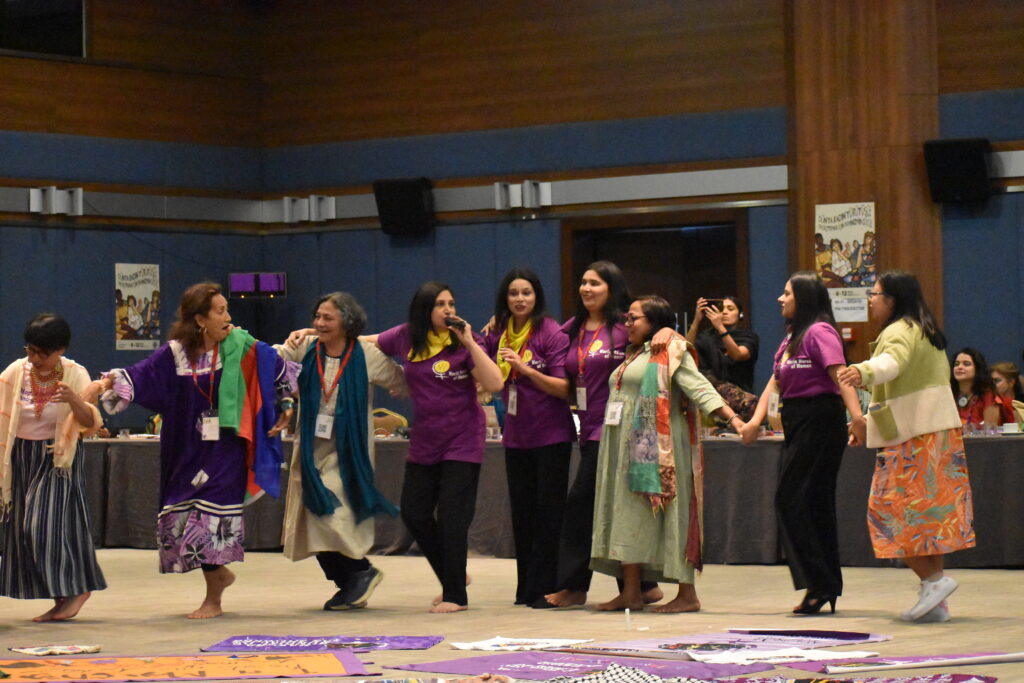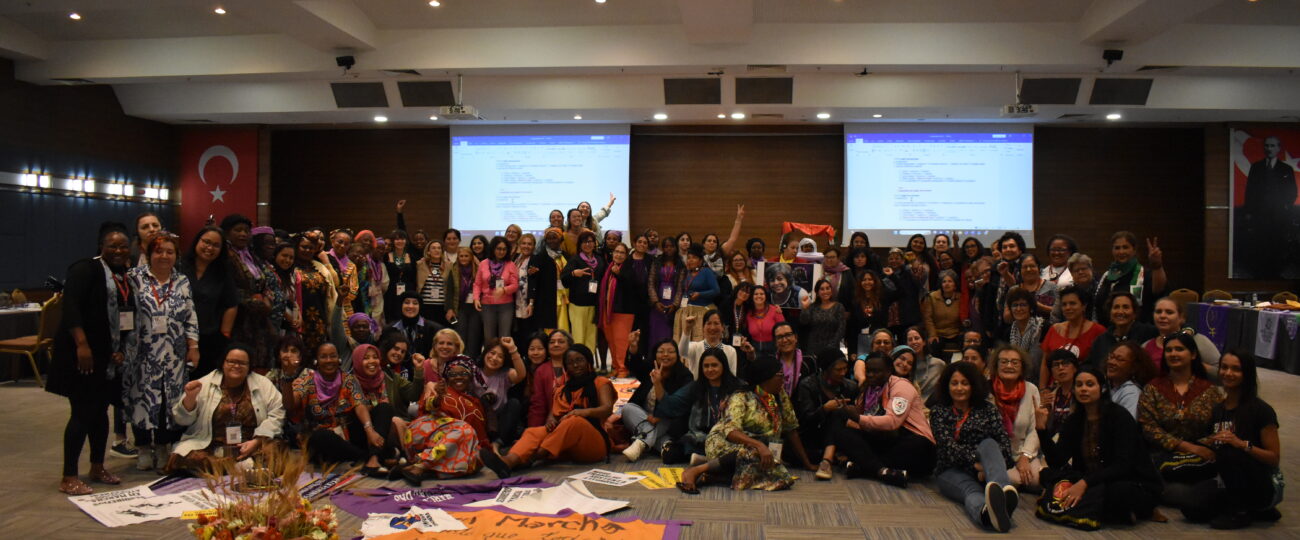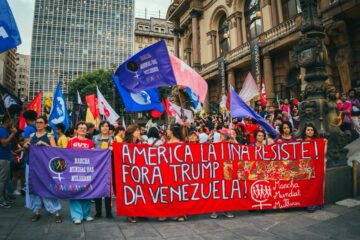The city of Ankara, Turkey, was busy for a few days. The strength of international feminism was clear during the 13th International Meeting of the World March of Women, bringing together more than 150 women from 65 countries across all regions of the world between October 7th and 12th, 2023. It was the first meeting held in person after the COVID-19 pandemic. It was also the first meeting organized by the International Secreatriat based in Turkey, which took office in 2021, under the coordination of Yildiz Temürtürkan.
In 2021, the 12th International Meeting was held online. It was crucial to agree once again on the challenges the movement is facing amid this systemic emergency, which has exposed the conflict between capital and life, and to revise the regional representations of the World March of Women (WMW). But there is nothing like the embrace, the shared chanting, the presence, and the conversation that happens looking into each other’s eyes. This is why those who had taken part in international spaces before felt that the 13th Meeting was a moment for reconnection with sisters they haven’t seen in a long time. And for those who attended a meeting like this for the first time, it was an opportunity to see and experience the global dimension of the movement.
The video below features delegates from Brazil, Pakistan, Palestine, Indonesia, Quebec, New Caledonia, Niger, Basque Country, and Western Sahara speaking about how they felt during the meeting and what challenges and tasks they see for the World March of Women from now on.
Feminist Strength, Feminist Memory
The slogan chosen for the 13th International Meeting was “Feminist Strength to Transform the World.” Inspired by that, the women who attended it experienced intense days of political education and debate about the World March of Women’s action areas, its political agenda, and organizing strategies. 25 years after the inception of the organization of the World March of Women, the final declaration of the meeting looked back on the slogan of its first demonstrations: “bread and roses.”
Bread to bring an end to women’s hunger and roses to allow them to live peaceful, happy lives. That’s the slogan that our march was founded under 25 years ago. At our 13th International Meeting, we celebrate our history and the fact that more young women and new countries are joining the WMW each year.
Declaration of the 13th International Meeting
The meeting started in a difficult time: right after the death of Nalu Faria, a Brazilian militant, co-founder of the WMW, and member of the International Committee representing the Americas. Many tributes were paid to her during the activities, looking back on what she has taught us, her formulations, her radicality, and her ability to encourage collective efforts.
Everyone who attended was inspired by Nalu’s conviction that feminism is a reality when it is organized by grassroots women around the world. And so they reaffirmed their commitment to building the World March of Women as a strong, active, revolutionary movement.
We became more feminists together with Nalu. She accompanied us many times on our marches and we are sure that she will always continue to accompany us. Her legacy is a decisive and fundamental contribution for building unity within social movements, as a creator of strategies and the articulation of women on the continent.
Statement by the World March of Women Americas
There was also a beautiful ceremony for the WMW’s memory: the Solidarity Quilt was handed over by African militants to the Turkish International Secretariat. The Quilt was produced by women from 53 countries in 2005, during the movement’s 2nd International Action. It has traveled across all continents and has since been kept by the international secretariats, as a historical object that makes us look back and forward—look back as we see the path the movement has already treaded; look forward as we are inspired by the creative possibility of internationalist feminism.
We Will Continue to March
The new regional representatives of the International Committee were endorsed during the meeting. Drawing from the accumulated discussions and decisions reached at the meeting, these sisters will have the fundamental task of formulating, with the secretariat, the 6th International Action to take place in 2025. Historically, these meetings are spaces where fundamental decisions are made for the organizational structure of the World March of Women, through a democratic method that values listening and consensus. So they are spaces for learning and connecting the global and local.
With the slogan “We will continue to march against war and capitalism and for popular sovereignty and good living,” they will build the bridges between national coordinating bodies in each region and the international levels of the movement. The slogan will follow the WMW activism in the following years. It points to the current battles women face around the world, as they are examples of resistance and resilience, but not only that: it also points the pathways and horizons of change proposed by feminism.
Our approach to good living is based on its traditional meaning, which associates it with a collective, community life in harmony with the natural world. Achieving good living for everyone around the world is one of the objectives of our proposal for a feminist economy. We aim to build popular sovereignty over our territories, energy resources, economies, and cultures.
Declaration of the 13th International Meeting
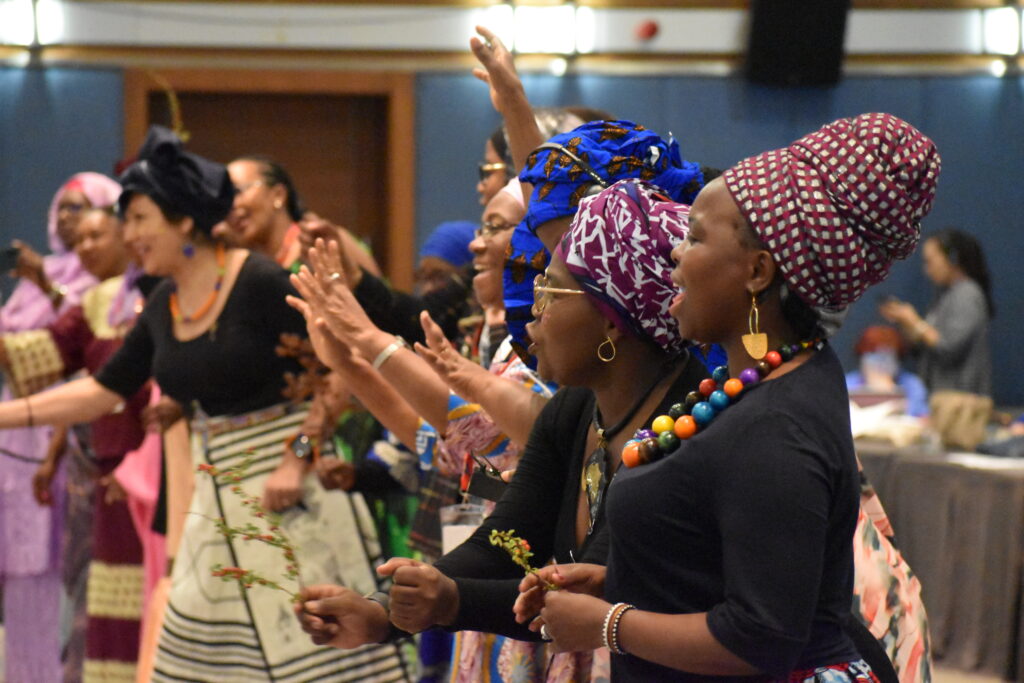
Common Agenda
We live in a world in crisis. Everywhere, we feel this systemic crisis in our bodies, our work, and our territories. Neoliberal practices offend shared life and principles that feminism holds dear, like the sustainability of life, interdependence, and ecodependence.
During the meeting, the participants discussed this crisis and identified agendas of resistance, including the struggles for peace, environmental justice, democracy, and popular sovereignty, against transnational corporations, militarization, and borders. These agendas of struggle are shared with ally organizations, including La Via Campesina and Friends of the Earth International, which also attended the Meeting and reaffirmed their cooperation and political trust.
In addition to political alliances, the World March of Women’s movement-building strategy also includes practices like political education, communications, solidarity, and mobilizations on the streets—all of which were mentioned and discussed during the meeting, and which are continuous actions that are constantly being collectively formulated.
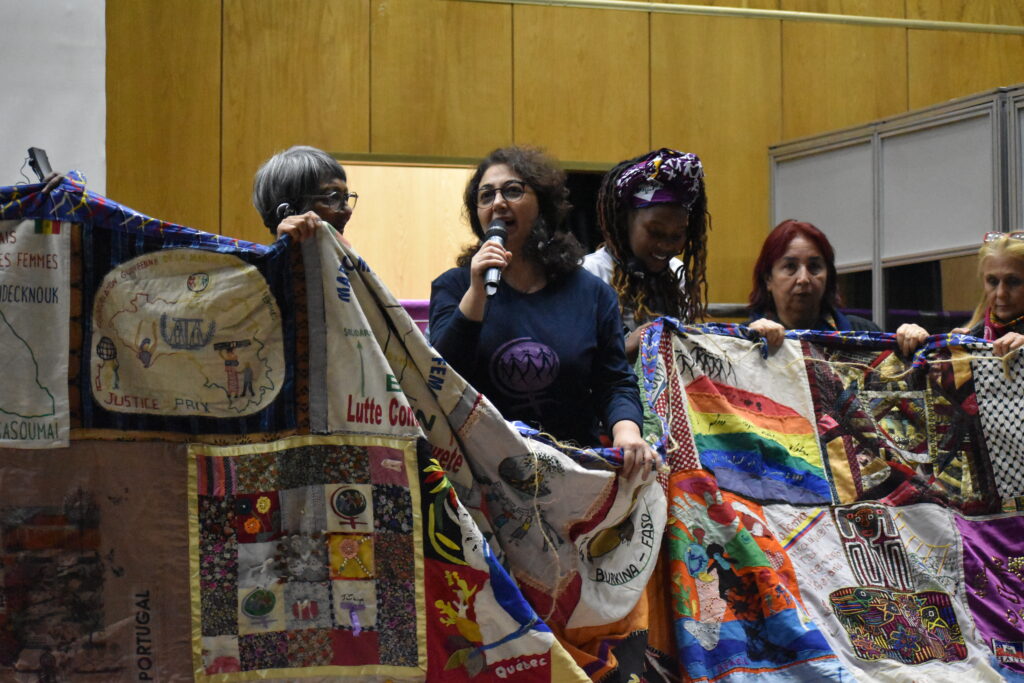
Internationalist Feminism Building Local and Global Struggles
As they shared experiences and information about regional and local contexts, the women who attended the meeting realized how similar their realities are. This happened throughout the meeting, in different ways: during místicas organized by different regions each day, featuring their own symbologies, identities, and political cultures; during conversations among all participants and in groups; during cultural moments and shared demonstrations.
And so the women reiterated the shared urgency to face the several forms of fundamentalism, conservatism, and war, which connect patriarchy, racism, and capitalism as mechanisms to control women. They also brought together their denunciations of the borders industry, extractivism, exploitation, and destruction brought about by transnational corporations that move against territories and communities, especially in the global South.
Moreover, the irruption of a new cycle of genocide promoted by Israel against the Palestinian people was a main point of discussion at the event. Peace, justice, demilitarization, and the peoples’ self-determination are principles of the World March of Women since its inception, and they were part of the reflections of the delegates as they built a common agenda based on feminist, anti-capitalist, anti-imperialist, and anti-colonial solidarity.
The WMW militants went back to their countries feeling empowered and nourished by the experience and the perspectives of their sisters from Palestine and other countries and territories in the Middle East, and feeling committed to strengthening solidarity mobilizations around the world.
